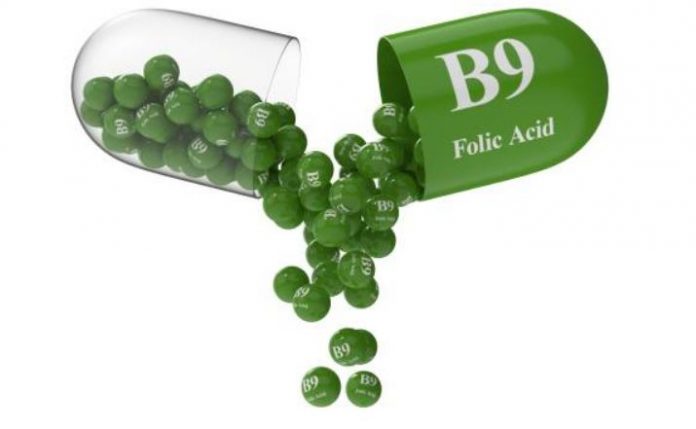The debate about the necessity of taking dietary supplements is still raging. While many health care professionals believe we get all we need from the foods we eat, others prefer to offer extra vitamins when their patients are under a stress such as pregnancy or illness or even aging, when the body’s function is impaired or overloaded.
Studies have proven that taking extra B group vitamins, especially folic acid and B12 have reduced birth defects by 72 to 100%.
And since regulations authorizing the addition of folic acid to grains have come into force, the incidence of birth defects in the USA has dropped by 19%, though sceptics claim there could be other reasons.
So what are some of the symptoms of folate deficiency? If your tongue is inflamed and you suffer from loss of appetite, shortness of breath, are irritable, forgetful and mentally sluggish, you may have a folic acid deficiency.
Folic acid is one of the B group of vitamins and most animal and plant foods are poor sources of it. The exception is liver which most people dont eat a lot of these days.
Some habits and diseases also play a major part in causing a deficiency of this vitamin. Celiac disease, alcoholism and irritable bowel syndrome are three such.
Studies have also suggested that when elderly people suffer from depression it is caused by a lack of folate (B9).
It should be taken with B6 And B12 to help its absorption and function in the body. These three vitamins work closely together and help relieve symptoms of depression.
They do this by decreasing the amount of homocysteine, which is thought to play an active part in causing the depression.
Sometimes, the amount of folate in proportion to the other two may need to be increased.
Several population-based studies across the USA have found that various cancers are less prevalent in people who have high levels of folic acid.
These people also consumed high amounts of beta-carotene, vitamin C and fiber. One very large study of 50,000 women found that adequate intakes of folate significantly reduced the risk of breast cancer.
Some prescription medications for inflammatory bowel disease have been found to interfere with the bodies ability to absorb folate (folic acid) and the deficiency has also been linked to male infertility and heart disease.
Foods that offer the most folic acid are dark leafy greens, brewers yeast, beef liver, some seafood, orange juice and milk. Root vegetables and whole grains also provide small amounts.
Side effects from folic acid supplements are rare, though they can occur if the dose exceeds 15000 mcg.
Taking any one of the B group of vitamins alone can cause a deficiency in the others, so dont be part smart.
Find out if you really do need it and make sure your health care professional knows you intend to take it.
Some prescription medicines like antibiotics and warfarin can react adversely to this supplement, while others like ibuprofen and aspirin can actually cause a deficiency.
Methotrexate, used to treat some cancer and rheumatoid arthritis increases the bodys need for folic acid, and its side-effects are greatly reduced by addition of this vitamin without impairing its effectiveness.
So, if you must take this drug, be sure see your health care professional about adding folic acid to your diet.

